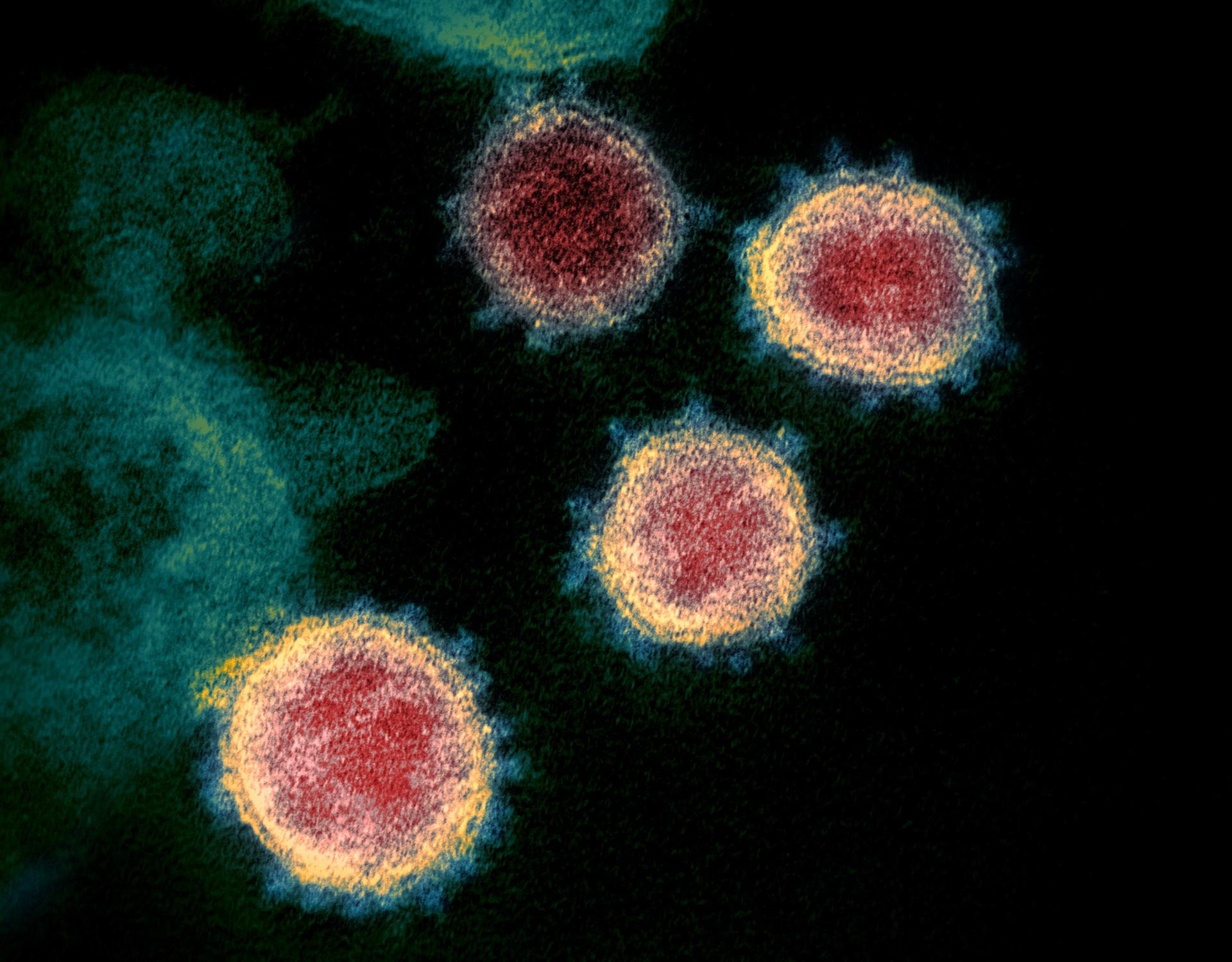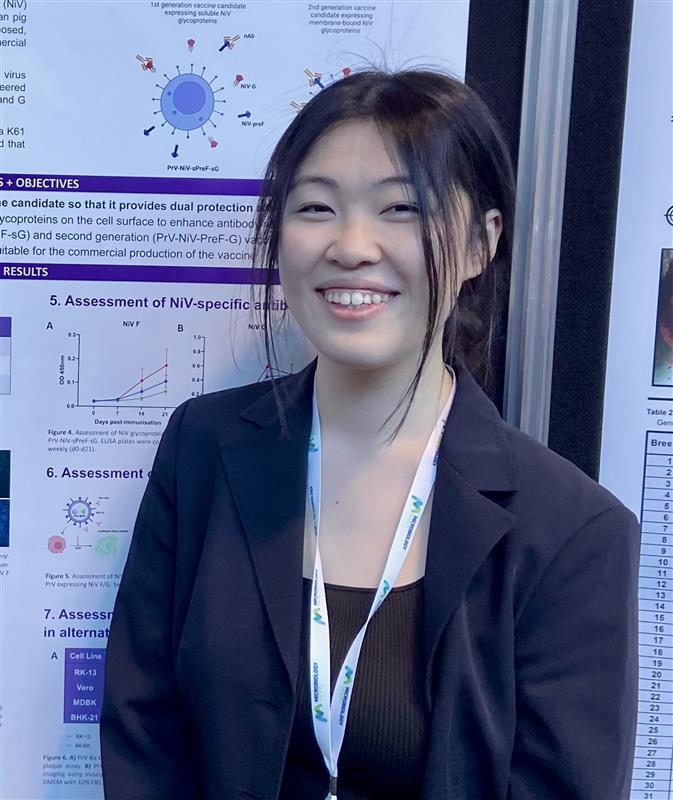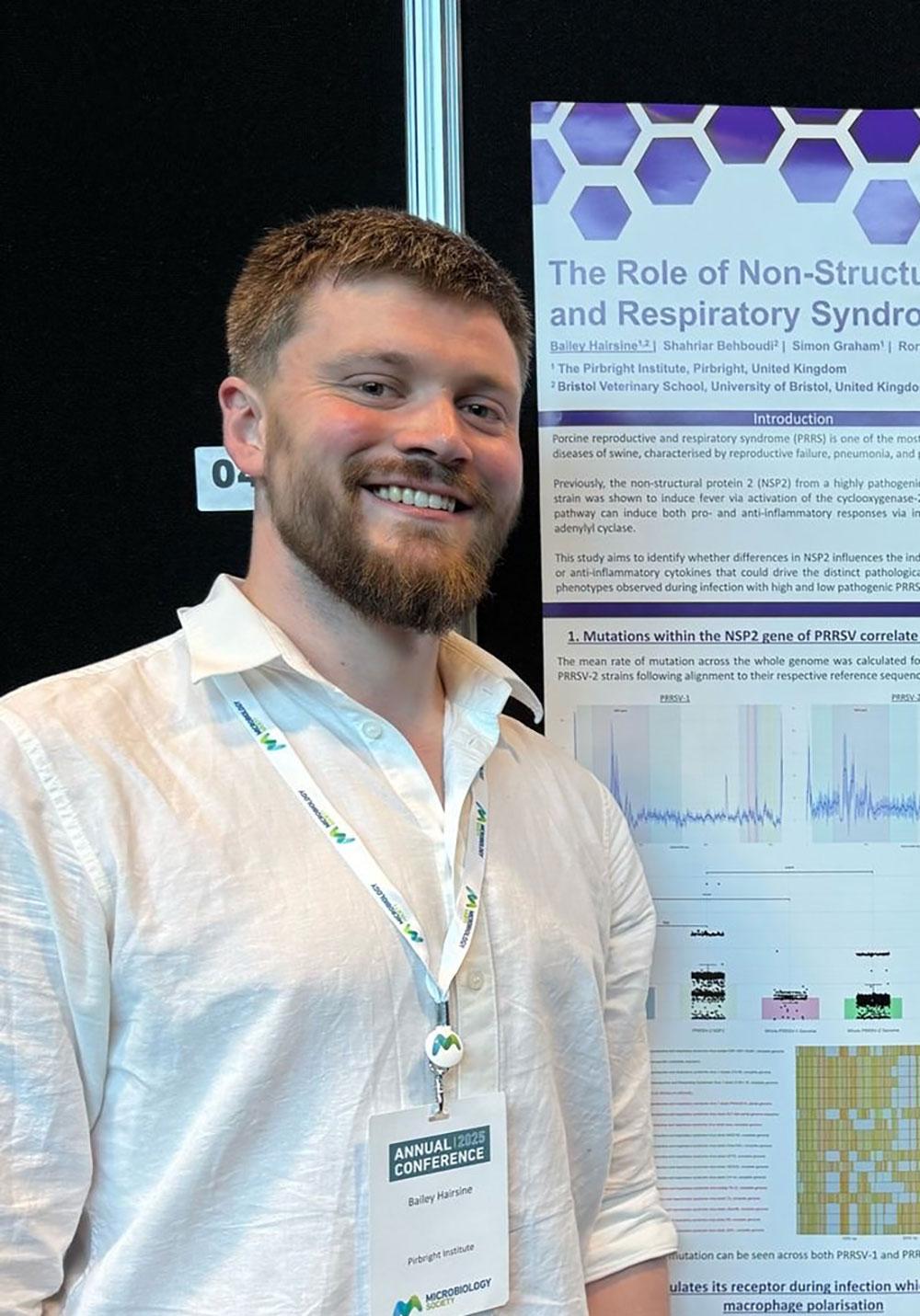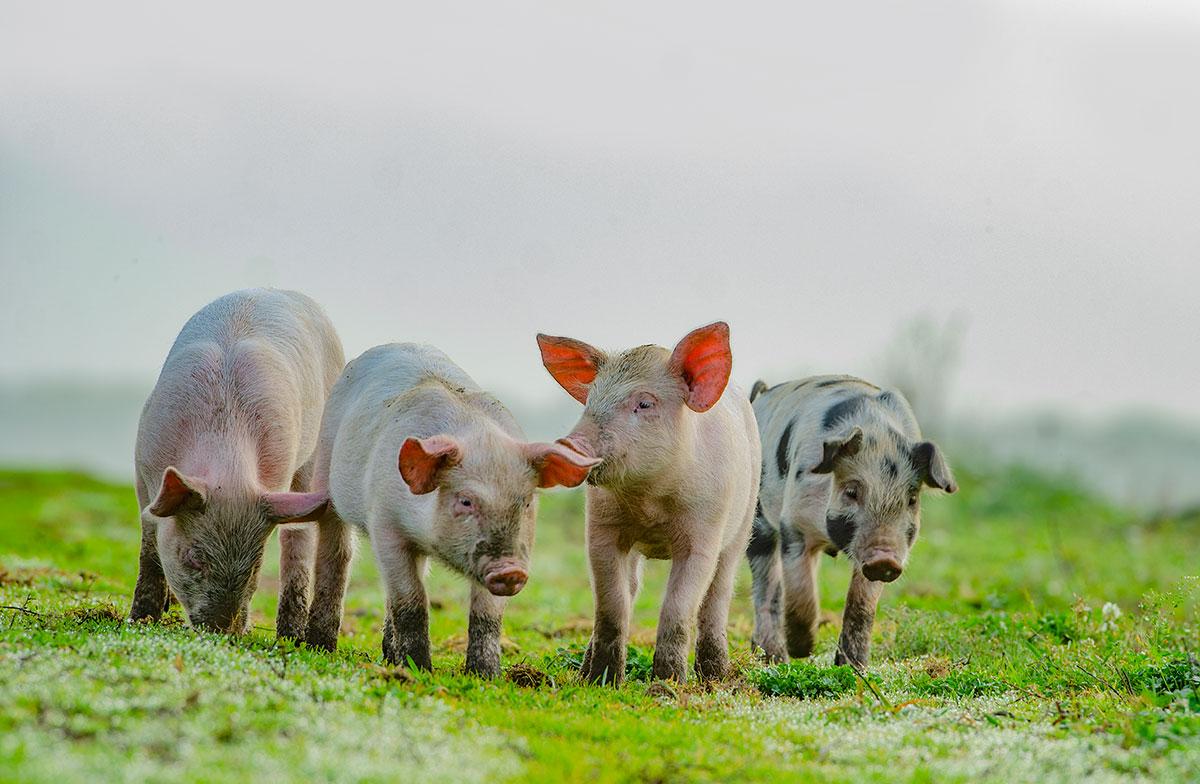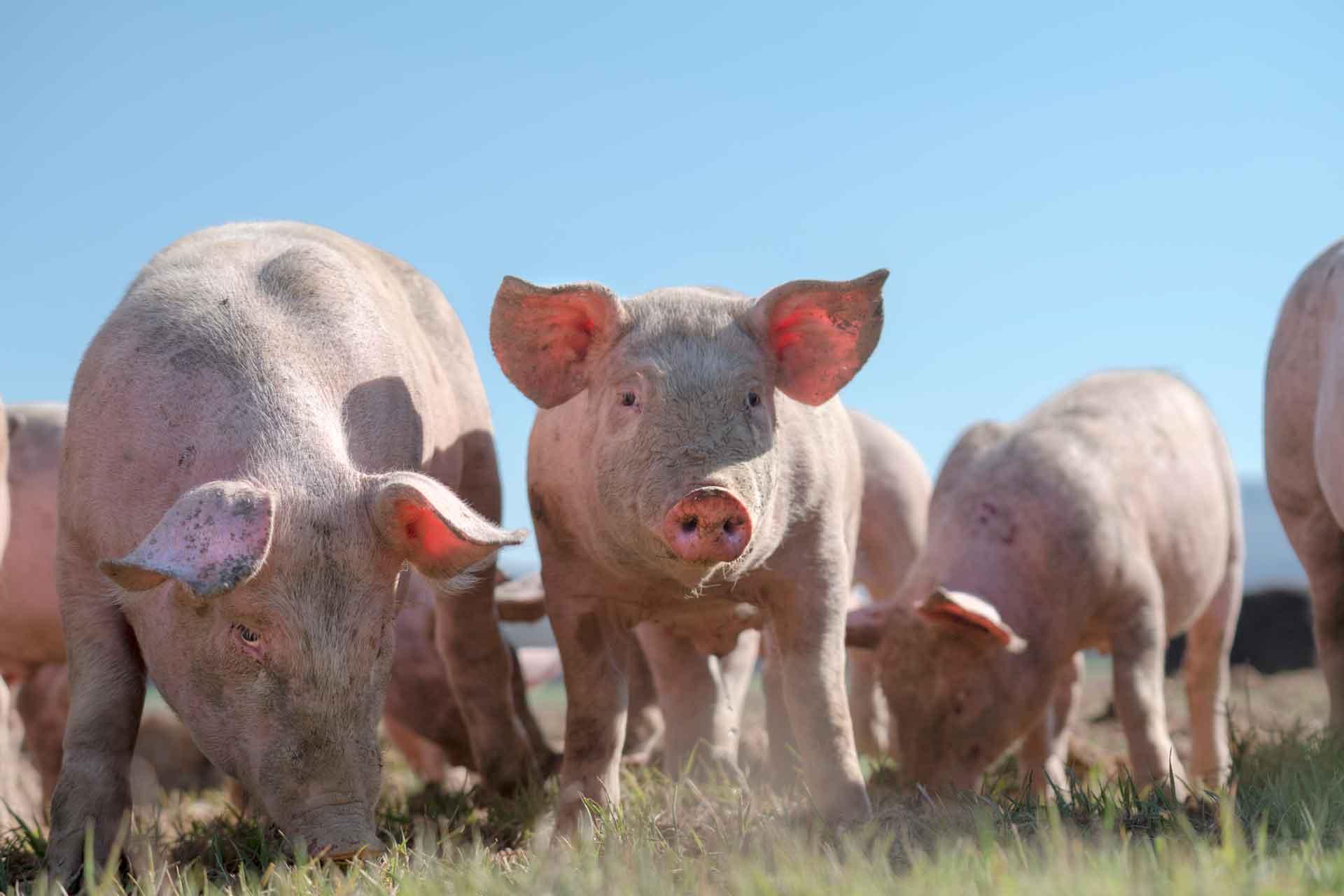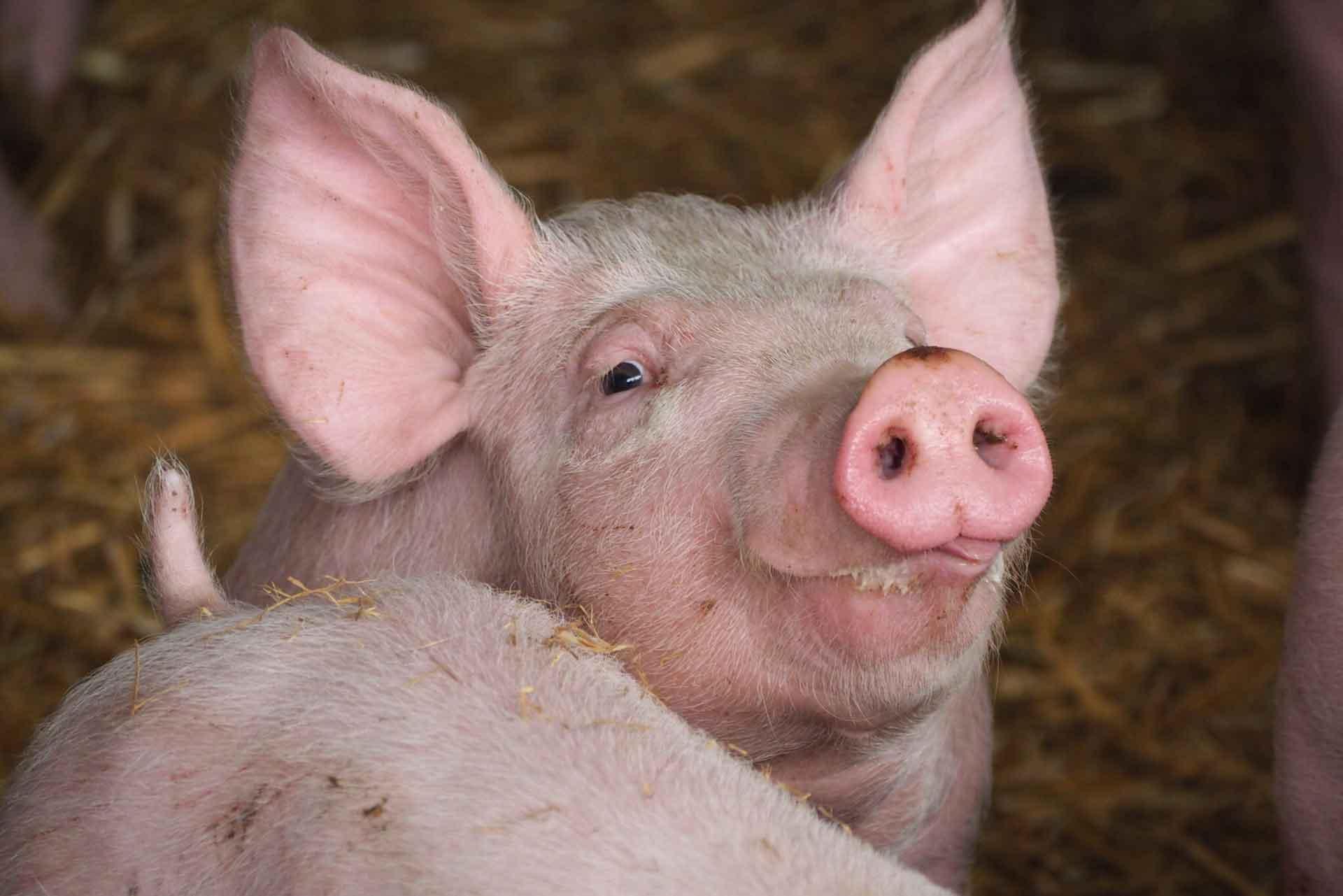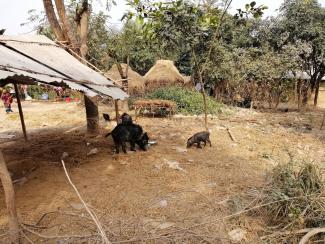Our group
We have a longstanding interest in understanding immunological mechanisms underlying protective immunity and the application of this knowledge to the development of new or improved vaccines.
Our major research focus is the development of improved vaccines for porcine reproductive and respiratory syndrome (PRRS). PRRS is arguably one of the most important infectious disease of pigs with a huge global economic impact.
The PRRS virus (PRRSV) exists as two distinct species: PRRSV-1 and -2. Both PRRSV species are rapidly diversifying, and this is dramatically illustrated by the emergence of highly pathogenic PRRSV-2 variants that spread across Southeast Asia with devastating effects. However, emerging PRRSV-1 strains are also highly virulent, highlighting the risks posed to the UK pig industry.
Vaccination is a key element to PRRS control and while both inactivated and live attenuated PRRS vaccines are widely used neither provides sufficiently effective protection against the diversity of circulating PRRSV strains. There is therefore an urgent need to develop more efficacious vaccines to aid PRRSV control. To help underpin vaccine development, we are working to better understand how PRRSV dysregulates immune responses to allow its persistence.
In addition, we are applying our expertise in porcine immunology and vaccinology to contribute to the development of vaccines to combat new and emerging zoonotic viruses, such as the Nipah virus.
Our aims
We are working with colleagues and collaborators on ambitious complimentary approaches aimed at the development of improved PRRS vaccines and better understanding how PRRSV is able to subvert the immune system. We also aim to develop a safe and efficacious Nipah virus vaccine for pigs that will aid the prevention and control of Nipah outbreaks.
Our research
Understanding arterivirus induced dysregulation of adaptive immune responses
Jane and Daniel are working to understand why pigs mount an ineffective neutralising antibody response to PRRSV infection. Studies with PRRSV and the closely related murine arterivirus, lactate dehydrogenase elevating virus, are testing the hypothesis that this is as a consequence of the dysregulation of the germinal centre response.
Understanding how the PRRSV nucleocapsid protein modulates the host immune response
Rory was awarded a Pirbright Strategic Career Development Award (SCDA), entitled “Understanding how the PRRSV nucleocapsid protein modulates the host immune response”. The project aims to uncover how this viral protein may direct the host macrophage response to drive the negative regulation of adaptive immune responses. Rory plans to deepen his research niche in molecular immunology, focusing on virus-host interactions and the crosstalk between innate and adaptive responses, to guide vaccine development.
Understanding the mechanisms of immunosuppression induced by PRRSV
PRRSV establishes a chronic infection, however, the mechanisms by which the virus is able to suppress the host’s ability to clear the infection is poorly understood. Bailey’s project aims to identify the role of the PRRSV non-structural protein 2 (NSP2) in modulating immunological pathways, specifically the cyclooxygenase-2/prostaglandin E2 pathway, to induce immunosuppression. The outcomes of this project will highlight the effect of PRRSV on macrophage and T-cell differentiation with the aim of identifying potential novel vaccine candidates through NSP2 mutations that can improve the immunogenicity of PRRSV vaccine strains.
Next-generation vaccines and diagnostics to prevent livestock reproductive diseases of worldwide impact (REPRODIVAC)
Patricia is working with a Horizon Europe consortium from academia and industry to develop new and improved vaccines and diagnostic tools required to better control four priority abortifacient diseases: porcine reproductive and respiratory syndrome (PRRS), Q fever, ovine enzootic abortion, and porcine brucellosis. Patricia is leading work to develop a broadly protective PRRS vaccine based on the elucidation of conserved neutralising antibody epitopes, and to develop an ELISA-based diagnostic assay as a surrogate for monitoring PRRSV neutralising antibodies by virus neutralisation test.
Assessment of immune checkpoint inhibition to augment PRRSV vaccine-induced protection
Immune checkpoint inhibitors are established cancer therapeutics but their ability to adjuvant vaccine responses remains largely unexplored. Chidi is evaluating the potential to enhance the potency of modified live PRRSV vaccines by genetically engineering them to express immune checkpoint inhibitor peptides.
A variable epitope library approach to the development of more broadly protective PRRSV vaccines
Current vaccines confer limited efficacy against heterologous PRRSV strains, and evidence suggests that neutralising antibody responses are directed primarily against variable epitopes on envelope glycoproteins. Antonia’s project aims to explore immunisation with libraries of these variable epitopes as a novel approach that may offer a pathway to more broadly protective PRRS vaccines.
Development of a bivalent vaccine to reduce the risk of Nipah virus outbreaks
Jack, Crystal and Debbie are working alongside international partners to develop a bivalent pseudorabies virus-vectored Nipah virus vaccine for pigs, aimed at reducing the risk of Nipah virus outbreaks. They are advancing the candidate from immunogenicity trials to efficacy testing, while also developing a companion DIVA diagnostic test, and exploring ensilication® technology to enhance vaccine thermostability.
DNA-launched Nipah virus vaccines and therapeutics
Shiv is working with international partners to isolate new therapeutic candidate monoclonal antibodies from human volunteers in Malaysia, who previously recovered from Nipah virus infection, in addition to evaluating DNA-encoded vaccine and therapeutic monoclonal antibody candidates in preclinical animal models.
Our impact
PRRSV is responsible for one of the most economically important infectious diseases affecting the global pig industry. PRRS control is hampered by the rapid evolution of the virus and shortcomings with existing vaccines. By dissecting the pathological and protective immune responses evoked by PRRSV, we will be able to design safer and more effective vaccines. We are working with global animal health businesses to develop improved vaccines that will contribute towards improving animal welfare and enhancing the performance and sustainability of the pig industry both in the UK and overseas.
Nipah virus causes a severe and often fatal disease in humans. Whilst fruit bats are considered the natural reservoir, Nipah virus also infects pigs and may cause an unapparent or mild disease. Direct pig-to-human transmission was responsible for the first and still most devastating Nipah outbreaks in Malaysia and Singapore in 1998-99. The outbreak was ended by culling 45% of the Malaysian pig population with costs exceeding US$500 million. The development of a vaccines and therapeutics to protect pigs and humans would reduce the severe economic consequences of Nipah outbreaks and the threat to public health.


